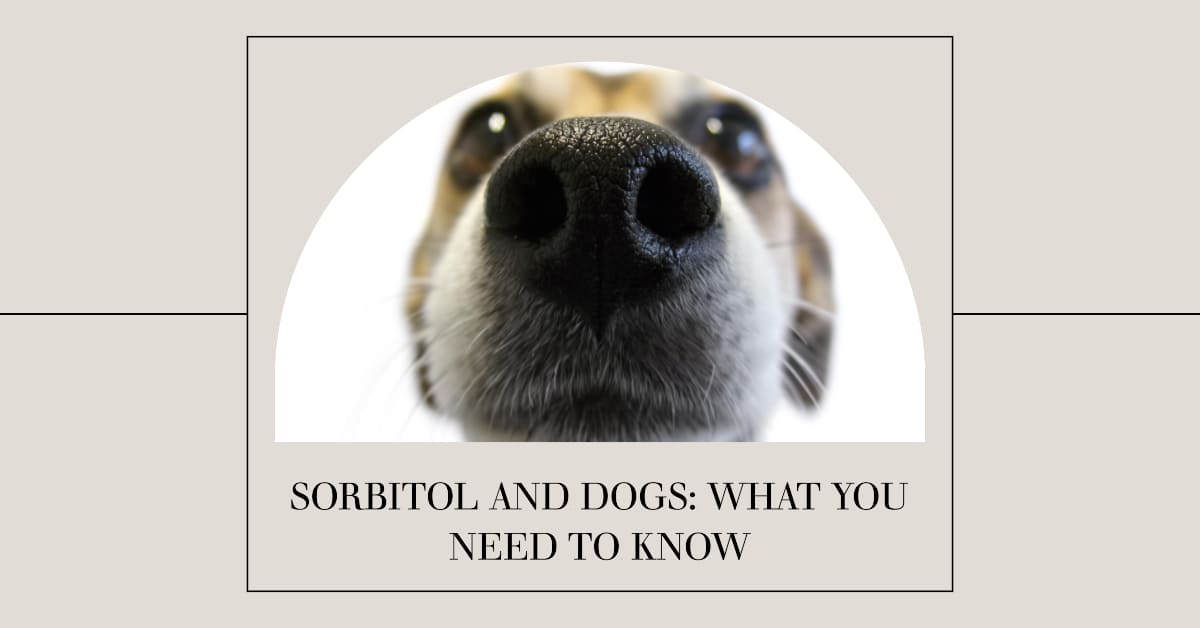As pet owners, we always want what’s best for our furry companions. We carefully choose their food, toys, and treats, making sure they stay happy and healthy. But when it comes to certain ingredients, like sorbitol, there can be some confusion and concern. In this article, we’ll explore the question, “Is sorbitol safe for dogs?” and provide you with the information you need to make informed decisions for your beloved pet.
Table of Contents
ToggleUnderstanding Sorbitol
Sorbitol is a type of sugar alcohol commonly used as a sweetener in many human products. It’s found in sugar-free gums, candies, toothpaste, and even certain medications. Due to its sweet taste and low-calorie content, sorbitol has become a popular ingredient in various food and pharmaceutical products. However, when it comes to our four-legged friends, the safety of sorbitol may not be as straightforward.
The Potential Dangers of Sorbitol for Dogs
While sorbitol may be considered safe for human consumption in moderate amounts, the same cannot be said for dogs. Dogs have different digestive systems and metabolisms than humans, and certain substances can affect them differently. Sorbitol can fall into this category.
When dogs consume sorbitol, it can lead to gastrointestinal issues such as diarrhea, gas, and bloating. Since dogs have a limited ability to break down sugar alcohols like sorbitol, it can remain undigested in their system, causing discomfort and potential digestive upset.
Moreover, sorbitol can act as a laxative in dogs, leading to frequent bowel movements. While this may sound harmless, excessive bowel movements can result in dehydration and nutrient loss, putting your pet’s health at risk.
Symptoms of Sorbitol Toxicity in Dogs
If your dog consumes a product containing sorbitol, it’s essential to watch out for any signs of sorbitol toxicity. Common symptoms may include:
- Diarrhea: Frequent loose stools or diarrhea can indicate that your dog’s digestive system is being affected by sorbitol.
- Abdominal discomfort: Your dog may show signs of abdominal pain or discomfort, including restlessness or changes in posture.
- Increased gas and bloating: Excessive gas and bloating are common side effects of sorbitol ingestion.
- Dehydration: Frequent bowel movements can lead to dehydration, which can cause lethargy, dry gums, and sunken eyes.
- Decreased appetite: If your dog experiences discomfort, they may show a decreased interest in food.
If you notice any of these symptoms or suspect that your dog has ingested sorbitol, it’s crucial to contact your veterinarian for guidance and advice.
Alternatives to Sorbitol
Now that we’ve discussed the potential risks of sorbitol for dogs, you may wonder what alternatives exist for providing your pet with safe, enjoyable treats. Fortunately, there are several options available that can keep your dog satisfied without the potential digestive issues associated with sorbitol.
- Natural sweeteners: Look for treats that use natural sweeteners like honey or molasses instead of artificial sugar substitutes.
- Limited ingredient treats: Opt for treats with a short and recognizable ingredient list. This way, you can ensure you’re avoiding any potential harmful substances like sorbitol.
- Dog-specific treats: Choose treats specifically formulated for dogs, as they are designed with their unique nutritional needs and digestive systems in mind.
Remember, it’s always important to introduce new treats gradually, monitoring your dog’s reaction and overall health. Every dog is different, and what works for one may not work for another.
Consulting Your Veterinarian
As with any concerns about your pet’s health, it’s essential to consult your veterinarian. They are the best resource to provide personalized advice based on your dog’s specific needs and medical history. If you have questions about sorbitol or any other ingredient, your veterinarian can guide you in making the right choices for your furry friend.
Conclusion
While sorbitol may be safe for human consumption in moderation, it’s best to avoid giving it to your dog. The potential gastrointestinal issues and discomfort it can cause make it an ingredient to be cautious about. Instead, opt for treats that use natural sweeteners or are specifically formulated for dogs. Always monitor your dog’s reactions and consult your veterinarian if you have any concerns.
Your dog’s health and happiness should always be a priority, and by being informed about the ingredients in their treats, you can ensure they lead a long and fulfilling life by your side.
So, the next time you reach for a snack or treat, remember to double-check the ingredients and keep your furry friend’s well-being in mind. They’ll thank you with wagging tails and wet kisses!
Disclaimer: This blog post is for informational purposes only and should not be seen as a substitute for professional veterinary advice. Always consult with a qualified veterinarian regarding any concerns or questions you have about your pet’s health and well-being.































